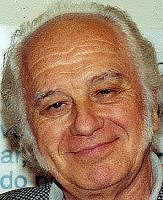 The unquestionable authority on mnemonic processes, Dr. Georgi Lozanov, conducted profound research on techniques of suggestopedic hypermnesia, in which he was experimenting with music, colors, movements, etc. The results of using music in trying to boost memory productivity are amazing. Here is, for instance, one of the experiments that some of his followers did:
The unquestionable authority on mnemonic processes, Dr. Georgi Lozanov, conducted profound research on techniques of suggestopedic hypermnesia, in which he was experimenting with music, colors, movements, etc. The results of using music in trying to boost memory productivity are amazing. Here is, for instance, one of the experiments that some of his followers did:In 1982, researchers set out to find the effect that combining music and memory would have in the retention of information. They chose 300 graduates and post graduates, all with PhDs. They split them into two groups. To the first group, they orally taught vocabulary words, with no other sound in the room. They did this by saying the word, then the definition. To the second group, they taught the same words in the same way, but added music in the background, particularly music from the Baroque and Classical periods.
The results, they found, were astounding. The disparity in the two groups of the recall of the vocabulary words was so great, that they did another test a few weeks later. The group that had not had music playing in the background could remember almost none of the words that had been taught a few weeks previously. The group that had the music in the background could remember almost all of the words.
Music is so powerful because it helps us:
 , Alice Cooper
, Alice Cooper , Queen
, Queen , The Doors
, The Doors , Janis Joplin
, Janis Joplin decrease your abilities. Tempo is the key:
decrease your abilities. Tempo is the key:
 very relaxing and disposing for studying. Enjoy!
very relaxing and disposing for studying. Enjoy!
- establish a positive learning state
- create a desired atmosphere
- build a sense of anticipation
- energize learning activities
- change brain wave states
- focus concentration
- increase attention
- improve memory
- facilitate a multisensory learning experience
- release tension
- enhance imagination
- provide inspiration and motivation
- add an element of fun
- accentuate theme-oriented unitsThe key is to choose the right music for your exam review sessions.
Listening to classical music set to 60 beats per minute (such as MozartSo here is a bit of "perfect" music for information retention. I found Handel's Water Music Suiteand Baroque
period compositions) stimulates both the right and left parts of the brain and allows the listener to be more susceptible to processing information appropriately. Dr. George Lozanov used this 60-beats framework to instruct his pupils to the tune of a 92% rate of retaining the material.
No comments:
Post a Comment